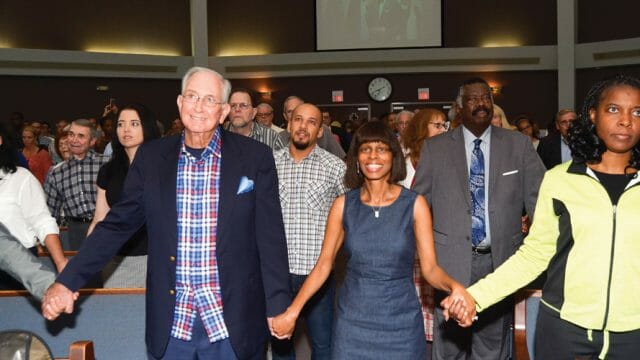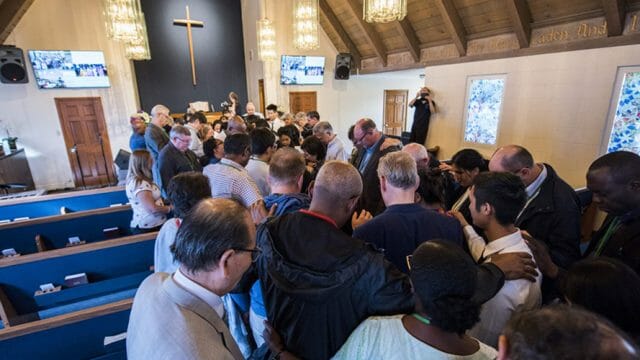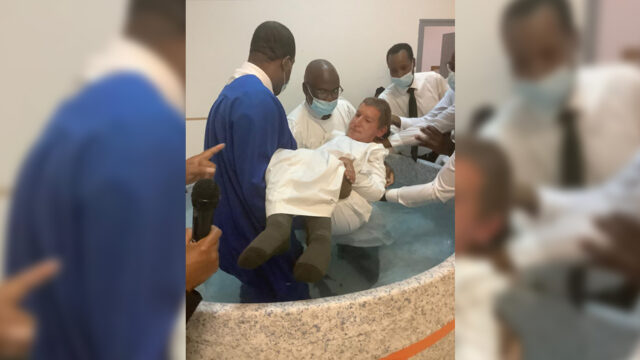At the AMEN conference, attendees give away snapshots of their commitment to service.
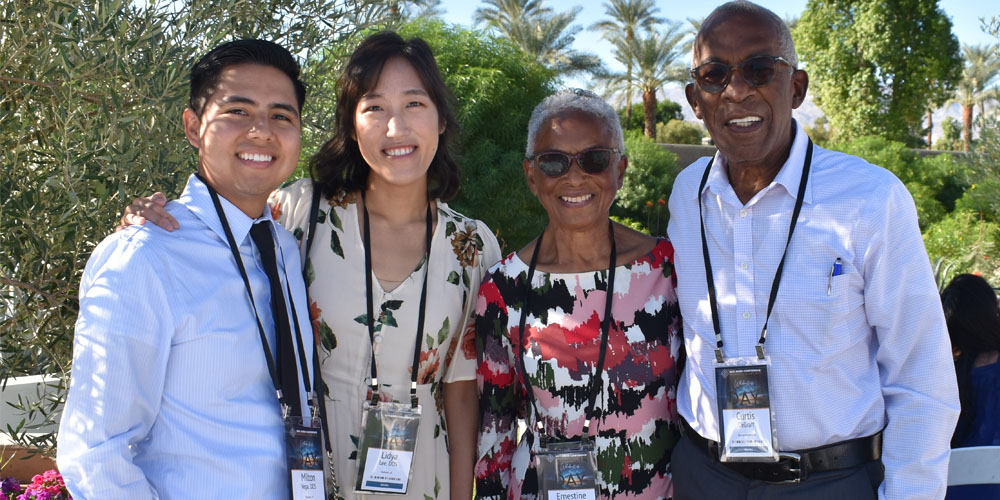
Curtis and Ernestine DeGraff devoted decades of their professional lives to education. Now retired in Devonshire, in their native Bermuda, they nevertheless come often to the U.S. to visit their grown-up children and grandchildren.
One daughter-in-law in a health-care profession is all they need to make the yearly trip to the Adventist Medical Evangelism Network (AMEN) conference a family affair. “We love coming to AMEN,” Ernestine says. “We are inspired.”
At an open-air breakfast table on a warm and sunny fall morning in southern California, the DeGraffs happen to sit across from Milton and Lidya Vega, a young couple they’re meeting for the first time. The Vegas live just an hour away in Redlands, where they work as dentists after graduating from Loma Linda University (LLU). They were classmates at the LLU School of Dentistry when a mission trip to Ukraine convinced them that their mutual connection transcended discussions about cavities and tooth extractions.
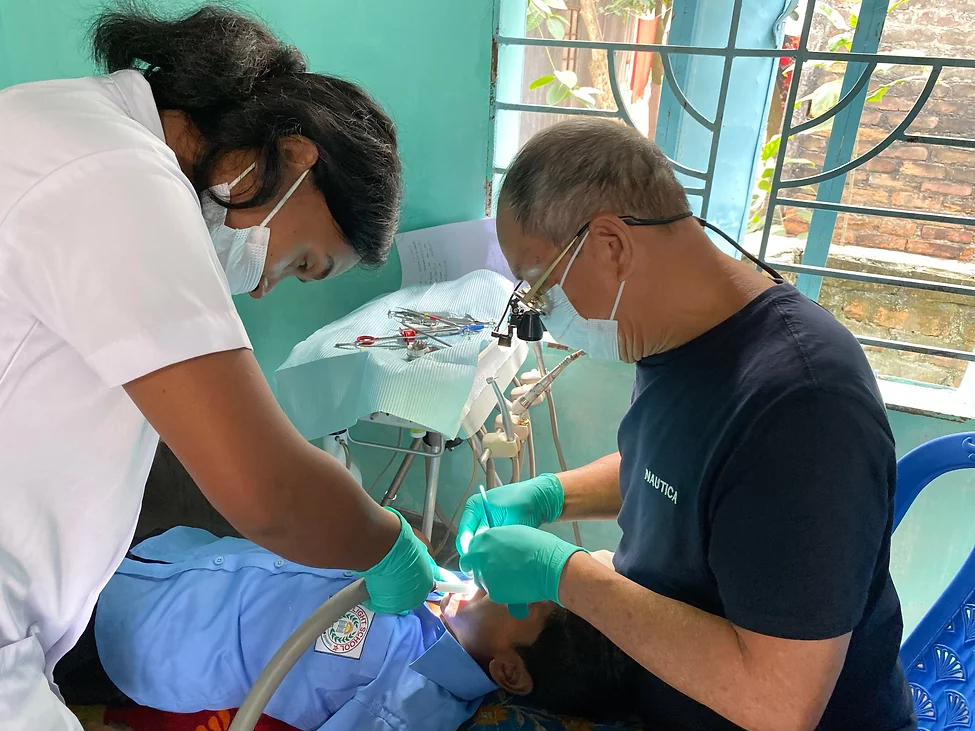
“We certainly talked more during that trip,” Lidya says. “We got to know each other better.” They got married in 2020.
The DeGraffs and the Vegas are just two representatives of a longstanding Adventist commitment to a fruitful life, God’s mission, and service to neighbors. They also represent yet another fruit of the historical Adventist penchant for finding a place “in God’s vineyard,” where you share your beliefs by word, example, and action.
Milton grew up in a home of Peruvian immigrants; Lidya in a house of Korean ones. As dissimilar as their backgrounds may be, they met at Loma Linda, as have countless others, with the same desire to use their vocation to advance God’s kingdom. And they have started a godly family, which ideally will be able to keep that tradition alive.
People of action
Despite the countless hours of planning, board meetings, and committee discussions that church organization demands, Seventh-day Adventists are, for the most part, people of action. Ingrained in them is a commitment to action cemented in the very name they use to refer to their faith, “the Adventist movement.”
From Paraguay to Palau to Papua New Guinea, hundreds of lay Adventist church members and professionals serve in supporting ministries that make a substantial difference in other people’s lives. And many of them are health-care providers.
Take Gerardo Toledo, for instance. As a child growing up in Argentina, Toledo read one of those books of mission stories that prompted him to say to himself, “I want to be a missionary.”
Shortly after completing his training as dentist in 1993, Toledo went to Bangladesh to work as a missionary dentist for four years. He then came to Loma Linda University to complete training in clinical ministry (chaplaincy), eventually trained as an endodontist, and began practicing in California.
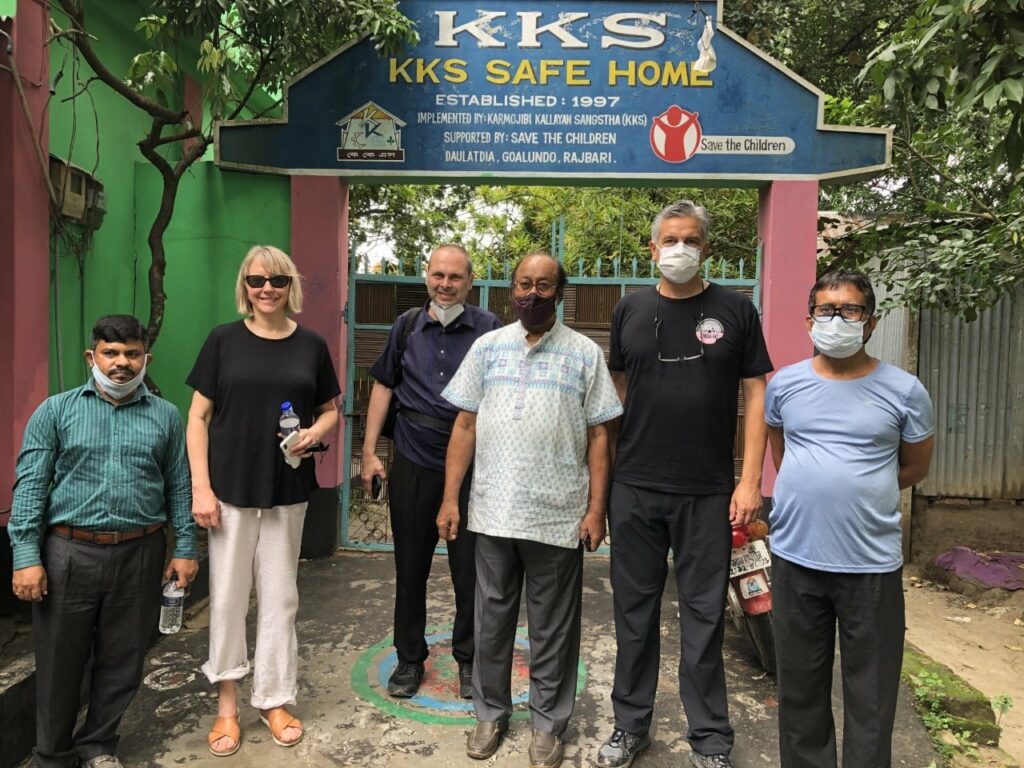
But Toledo never forgot his mission service in Bangladesh. He is currently president of BanglaHelp, a non-profit that provides education for children and adults living in the slums of Dhaka, Bangladesh’s capital. Banglahelp is now also working to rescue women from prostitution.
BanglaHelp was established to honor Milan Moskala, an Adventist dentist who lived and worked in Bangladesh for 17 years. During his years serving in Bangladesh, Moskala opened 10 schools in the slums to support the education of poor children. BanglaHelp currently supports five schools in the slums.
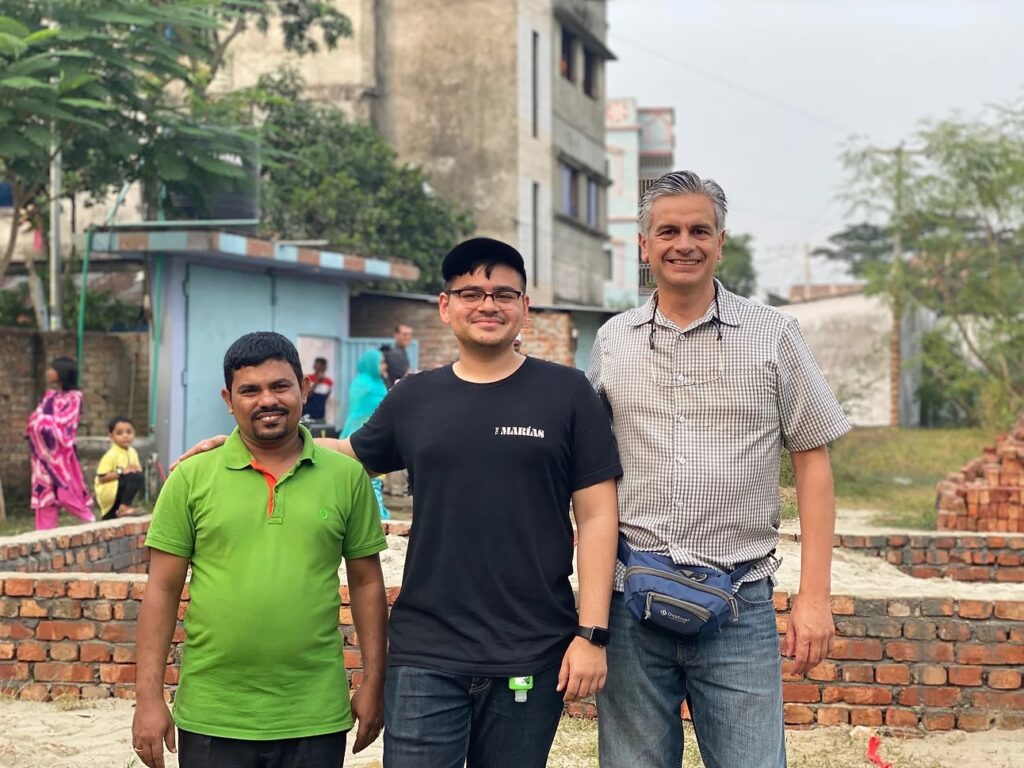
“Bangladesh is considered one of the most densely populated countries, with 167 million people living in a country with the landmass of the state of Iowa [57,360 square miles, or 148,560 square kilometers],” Toledo explained during a presentation at the AMEN conference. “Sadly, more than 40 percent of the population is illiterate.”
The ministry’s educational endeavors have been steadily growing. “In 2019, we had 710 students from Nursery to fifth grade, and 75 adult students,” Toledo said. “In 2020, we were able to open the sixth grade, with a total of 810 students and 75 adult students. The adult students’ class is a two-year program that helps them learn to read and write.”
Lives transformed
Among hundreds of stories of lives transformed, Toledo shared the story of a woman who learned to read and write and then found out that she had been overpaying her utility bills for years because she would pay whatever she was told. “Education changes people’s lives,” Toledo emphasized, especially in some of the most challenging places to live in the world.
Toledo is moved to tears as he shared how he partnered with God to fund his mission endeavors and the challenges he has faced through the years to keep the ministry alive. “There were moments when I told God, ‘Don’t let others say that you have brought us to kill us in the wilderness,’” he said, echoing Moses’ words in Deuteronomy 9. But the Lord has been faithful, Toledo said, and not even a worldwide pandemic has stopped the ministry’s service and trips to Bangladesh to keep the ministry thriving.
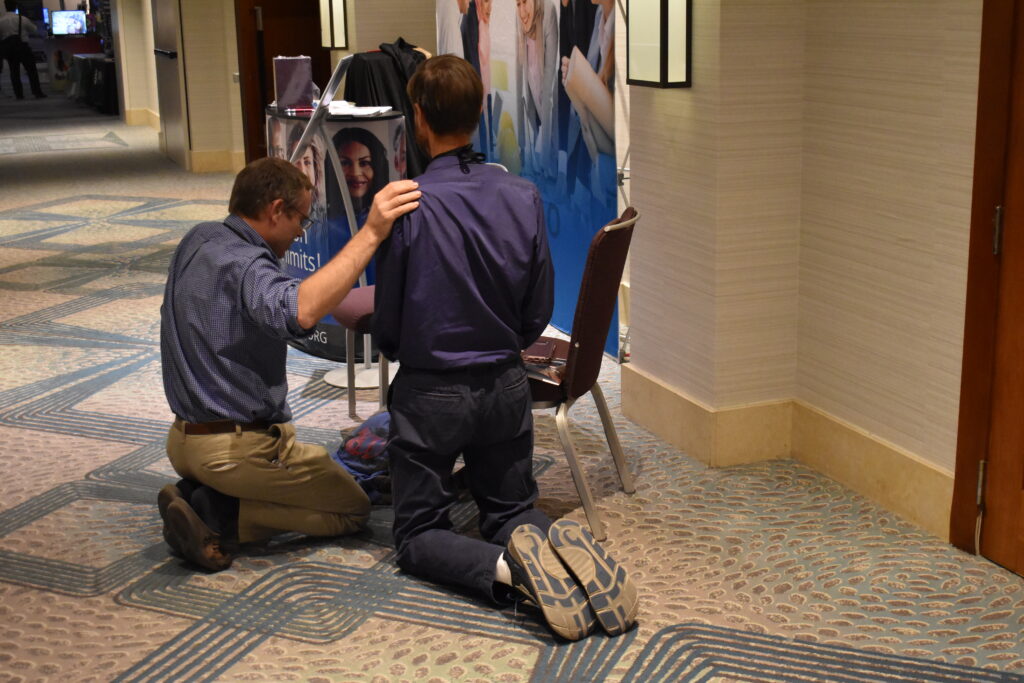
“Our students come from extreme poverty; their parents cannot afford even basic school supplies to send them to the public schools,” Toledo noted. “Our team provides these children the opportunity to learn to read and write both Bengali and English. We also provide a full meal every day of the week, consisting of rice, dhal [lentils], vegetables, eggs twice a week, one banana, and bread.”
BanglaHelp also funds sewing projects to help some of the poorest women to learn a skill that can help them make a living. Additionally, the ministry has hosted clinics that provide medical, dental, and health education to some of the neediest residents, who truly are what Jesus described as “the least of these.”
God is always present
Back in sunny southern California, the DeGraffs and the Vegas have finished breakfast and are ready to move on. They have bonded over a bowl of cereal, a lush platter of fruit, and sharing contrasting yet similar experiences. They are four Adventist lives, a sample of countless others committed to service and mission through thick and thin.
The Vegas are attentive, drinking in every word of advice and seasoned wisdom from the DeGraffs.
“Fifty-one years married,” Ernestine answers to a hypothetical question the Vegas didn’t ask. “Fifty-one years. I would like to say it was a smooth ride, but no — there are ups and downs, you know.”
“Oh, yes, we made some mistakes,” Curtis agrees, “especially at the beginning.”
“Indeed,” she adds. “Fifty-one years later, we are still learning, still putting some effort. But with God — ah, with God — with God there is always hope.”



